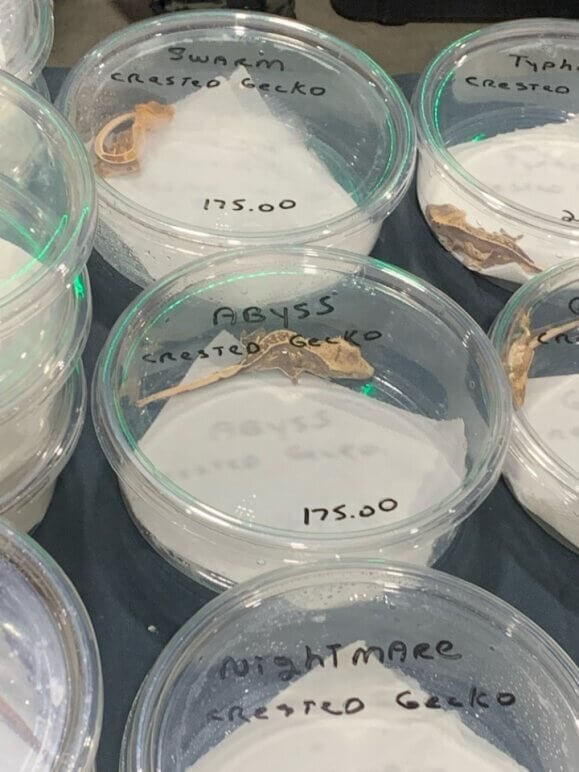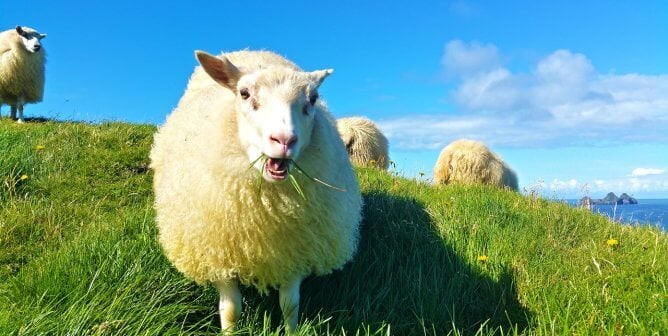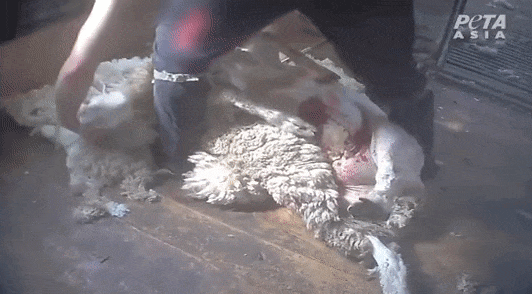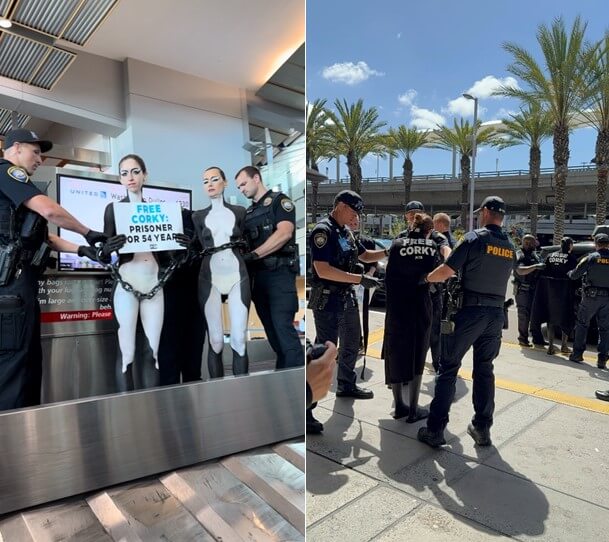Following a disturbing pattern of violations at Fitch Ranch Artisan Meat Company in Craig—e.g., a worker dragged a disabled pig by her ears and employees have repeatedly shocked or electrocuted animals—PETA rushed a letter today to 14th Judicial District Attorney Matt Karzen urging him to investigate and file appropriate criminal charges against those responsible.
In an incident on February 21 that resulted in a temporary suspension notice from the U.S. Department of Agriculture, a federal inspector reportedly witnessed a worker grabbing a disabled pig by her ears and dragging her off a trailer, causing her to cry out and fall from the trailer onto a concrete floor. Once the pig was lying on the floor, the worker grabbed her by the ears again and dragged her on her stomach about 5 feet toward an alleyway, where she cried out and got into a “semi sitting position” while she continued to be dragged.
Additionally, last year, slaughterhouse workers at Fitch Ranch Artisan Meat Company botched stunning attempts on six different animals—a lamb, a cow, and two steers who were repeatedly shot in the head and two pigs who were repeatedly electrocuted. One of the pigs, who was electrocuted near the shoulder blades instead of on the head, cried out, ran around, and tried to climb out of the “stun box” before another employee finally rendered the animal unconscious.
“These violations show that Fitch Ranch Artisan Meat Company either can’t or won’t comply with federal law designed to prevent the prolonged suffering of animals,” says PETA Vice President of Evidence Analysis Daniel Paden. “PETA is calling for a criminal investigation on behalf of these animals and reminds everyone that the only humane meal is a vegan one.”
PETA is pursuing charges under state law because federal officials haven’t prosecuted any inspected slaughterhouses for acts of abuse since at least 2007.
PETA—whose motto reads, in part, that “animals are not ours to eat”—points out that Every Animal Is Someone and offers free Empathy Kits for people who need a lesson in kindness. For more information, please visit PETA.org or follow the group on X, Facebook, or Instagram.
PETA’s letter to Karzen follows.
April 1, 2024
The Honorable Matt Karzen
14th Judicial District Attorney
Dear Mr. Karzen:
I hope this letter finds you well. I’d like to request that your office (and the proper local law-enforcement agency, as you deem appropriate) investigate and file suitable criminal charges against Fitch Ranch Artisan Meat Company and the workers responsible for dragging a disabled pig by the ears off of a trailer and across the facility on February 21—and repeatedly shooting or electrocuting six animals—at its slaughterhouse located at 383 E. First St. outside Craig. The U.S. Department of Agriculture’s Food Safety and Inspection Service (FSIS) documented the latest incident in the attached report, which states the following:
While the establishment was unloading a lame market swine from a livestock trailer at the secondary entrance into the alleyway, I observed an establishment employee grab the [conscious pig] by [her] ears and drag the animal on [her] belly off of the trailer. The swine began vocalizing when [she] was grabbed by the ears. The … animal fell from the trailer to the concrete floor … approximately 10 inches. Once the [pig] was out of the trailer and laying on the ground, the … employee then grabbed the swine by [her] ears again and continued to drag the animal on [her] belly approximately 5 feet towards the alleyway and the swine sat up into a semi sitting position for approximately 3 feet while still being dragged by [the] ears. The swine was vocalizing while being dragged.
Additionally, FSIS issued this facility a “Letter of Concern” last year for six violations of federal law that caused animals to endure prolonged, painful deaths:
- On June 28, 2023, a pig was electrocuted, remained conscious, and cried out after electrical tongs slipped off her ears.
- On June 26, a steer continued standing, looking around, crying out, and bleeding after he was shot in the head.
- On June 21, a worker shot a lamb again after the first shot failed to stun the animal.
- On June 20, a cow continued to stand and look around after being shot in the head.
- On June 14, a worker electrocuted a pig near the shoulder blades instead of the head. The pig cried out, ran around, and tried to climb out of the “stun box” before another employee finally rendered the animal unconscious.
- On March 1, a steer remained conscious after he was shot in the head.
Further details about some of these incidents can be found here.
This conduct appears to violate C.R.S.A. § 18-9-202. Importantly, FSIS’ actions carry no criminal or civil penalties and do not preempt criminal liability under state law for slaughterhouse workers who perpetrate acts of cruelty to animals. Given that FSIS has not initiated a criminal prosecution of a licensed slaughterhouse for inhumane handling since at least 2007, charges under state law are these victims’ only chance at a measure of justice.
Please let us know if we can do anything to assist you. Thank you for your consideration and for the difficult work that you do.
Sincerely,
Colin Henstock
Investigations Project Manager
The post Feds See Disabled Pig Dragged by Her Ears at Local Slaughterhouse; PETA Seeks Criminal Probe appeared first on PETA.








